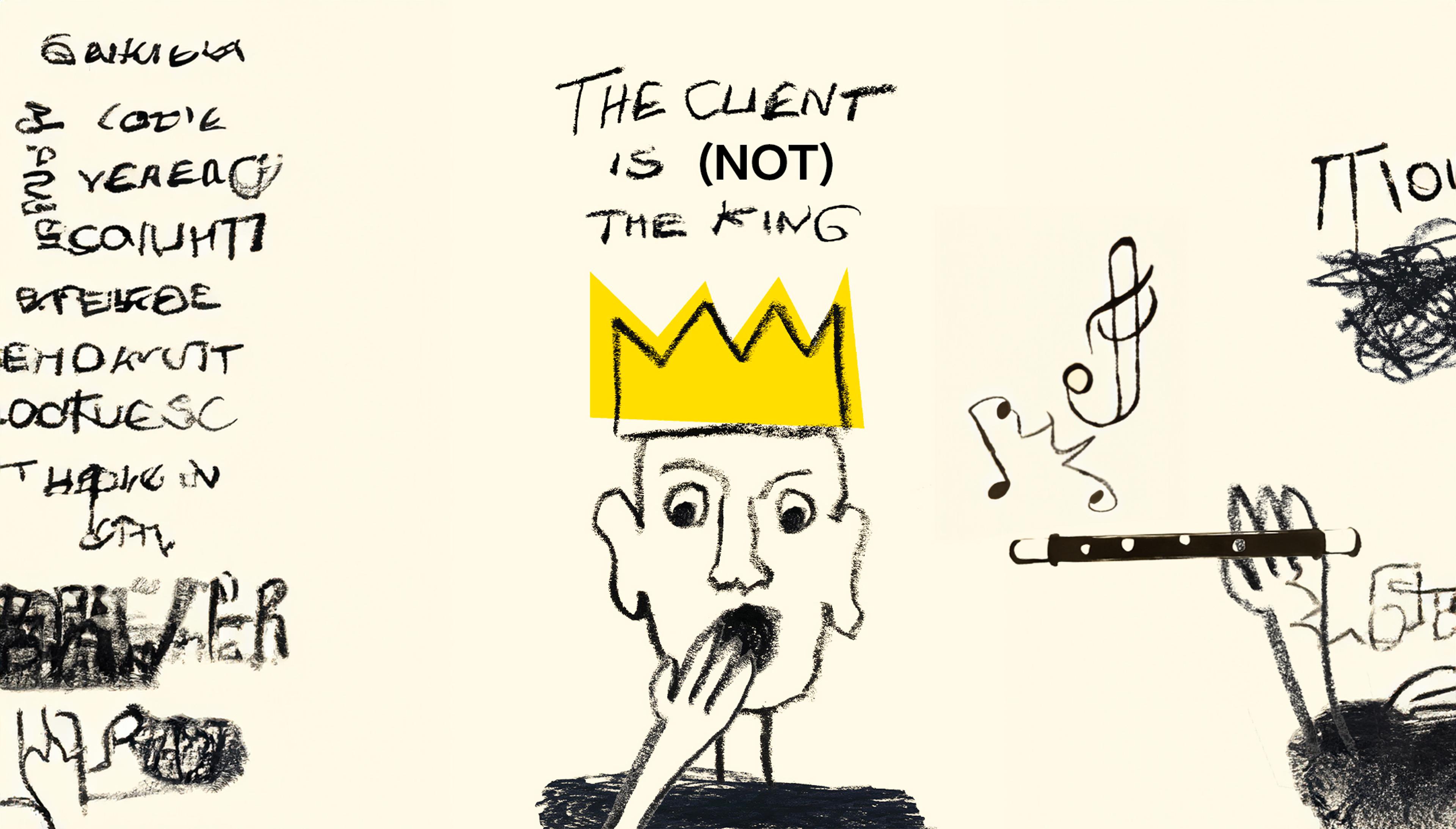The client is (not) King
We prioritize our clients and their realities in our work and approach. As explained in another article, we pay a particular attention to understand our clients, their needs and their contexts.
To illustrate our customer-centric approach, we prefer the English saying, “who pays the piper calls the tune” over “le client est roi”. If we know that in the end the meaning of the sentence is the same (because clients do have the final say), the story of the piper brings three important nuances:
- It acknowledges the existence of the piper – so the person blowing in the pipe, who is crucial for the story, and it recognizes him/her a certain expertise (if anyone could play the pipe, there would be no need to pay someone for it).
- It suggests that while the client dictates the overall direction (he “calls the tune”), there is still room for interpretation for the piper: the rhythm, the tempo, the style. So the client choses what we play, but we can be proactive in the way we want to play it.
- On our understanding, the one who pays “calls -the first- tune” but can still be surprised by the piper for the rest of the show.
These three elements are crucial for WOOGIE as a creative studio:
- Providing expertise – while clients have the final say, we still claim to bring expertise around the table. Our clients come for advice and guidance (whether in the end, they want to follow them or not);
- Going for the extra mile – most of our clients come with well-formulated, and well-thought requests, some assignments are very clear and precise. No matter the constraints, we always go for the extra miles, we aim for the little efforts that makes the results better than originally expected.
- Propose more – most of our clients come with one specific demand, but after analyzing their context and challenges, the needs we identify are often broader than what they originally thought. When it’s the case, we allow ourselves to propose more and we sow seeds for later.
We don’t serve Kings and Queens.
But we can certainly play whatever tune you call.
We can’t predict where the show will bring us and if the party will ever stop.
But we will deliver a performance beyond expectations.
